We all create our personal space whether consciously or subconsciously. This protective shield acts as your comfort zone and it’s up to you to determine when and how you want to define your boundaries. And, that’s why it’s natural to feel uncomfortable when someone invades your personal space. Do you want to know how to cope with personal space invaders? Read on.
If you want to see people get angry fast, try invading their personal space. These intrusions cause our stress hormones to skyrocket and can affect our physical and mental health. Blood pressure, heart rate, and muscle tension are all affected. Thus, the public outrage at new intrusive security pat-downs of passengers in airports.
What is personal space?
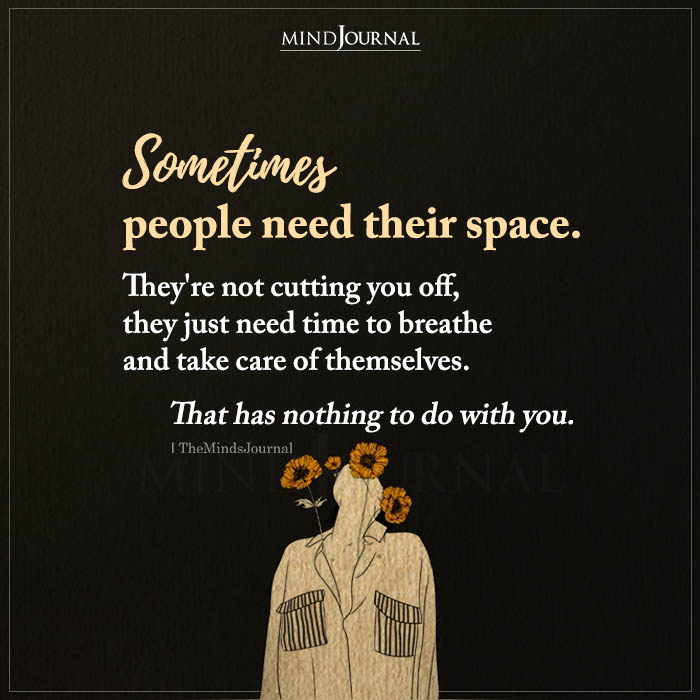
In my books, “The Empath’s Survival Guide” and “Emotional Freedom“ I emphasize its main aspects. First, it’s the invisible border that surrounds us and sets our comfort level when we interact. Depending on our preferences, it can range from inches to feet and varies with situations, upbringing, and culture.
(Elephants have a no-go line of a few feet around them; cross it and you’ll hear a noisy trunkful or be charged.) Most Americans need an arms-length bubble around them.
Second, personal space refers to the border that guards your physical and psychic privacy. You have violated it by barging in on your spouse when he or she needs to be alone. Other types of violations can include sound, odors, sneezing on someone if you have a cold, or cyber intrusion such as spam. You can also intrude into someone’s property or turf, a breach that can ignite gang violence or wars between nations.
Related: 5 Ways To Spot Emotional Triggers and How To Deal With Them
To better understand your own needs about personal space, and to reduce stress, be aware of the following triggers.
Nine Common Personal Space Intrusions:
- Hearing the blather of someone’s cell phone conversation while waiting in line.
- Telemarketers.
- Loud music, loud people, loud machinery, or loud cars.
- Internet cons, schemes, and spam.
- Gym hogs who won’t let others work out on the equipment.
- Air pollution, toxic fumes (for example, car exhaust), strong perfume.
- Tailgaters or slow drivers.
- A person talking too close in your face or backslapping.
- Intrusive airport security pat-downs.
Why can personal space intruders make our blood boil and boost our stress level? Aside from being obnoxious, rude, dangerous, or unhealthy, they violate a primitive instinct that we’re not safe or respected. When we experience such violations, our brains actually react as if we were still back in 50,000 B.C.
Research shows that personal space disputes, such as neighbor feuds about overgrown foliage, are evolutionarily prompted responses aimed at guarding resources and ensuring survival.
Tips to Honor Your Personal Space Needs and Reduce Stress
When someone intrudes on your personal space, don’t act impulsively. Take a breath. Stay calm. Decide how you want to respond. Sometimes you’ll opt to address the issue directly. If so, it’s most effective to express your needs with an even, non-accusatory or angry tone.
Option A: Set Limits
1. Talk to your family and friends.
We often get short-tempered when we’re overwhelmed. Even a brief escape will relieve pressure and let you emotionally regroup. Plan regular mini-breaks at home.
Tell your kids that you need five minutes in the bathroom with the door shut and that they may not intrude.
Tell your mate that you want to read in a separate room when the television is on. Or set limits with a friend by saying that you’d like to refrain from late-night phone calls. Conveying your needs with kindness can lead to more loving relationships.
Related: Setting Personal Boundaries To Protect Your Mental Health
2. Speak up with others.
When you have an ongoing interaction with someone, it’s useful to set kind, firm limits — then show appreciation when the offender adheres to them.
For instance, in a sweet voice, I asked a man at my gym who’s constantly on his cell phone, though they are banned, to please not use it so that others could relax. Initially, he snapped, “Well, I wouldn’t want to disturb you!” but I just smiled back at him and sincerely said, “That is so kind of you, sir. I appreciate it.” Here, sweetness worked. At least around me, he never used the phone again.
In some circumstances, though, resolving the conflict might involve more discussion and mutual compromise.
3. Avoid toxic situations.
Avoid or minimize contact with those who don’t respect your needs. For instance, don’t drive in a car with a rageaholic. (Anger’s poisonous energy is intensified in cramped spaces). Or don’t travel with someone who’s an obsessively chronic talker if you want to be quiet and unwind.
Option B: Practice the Zen Approach
1. Let it be.
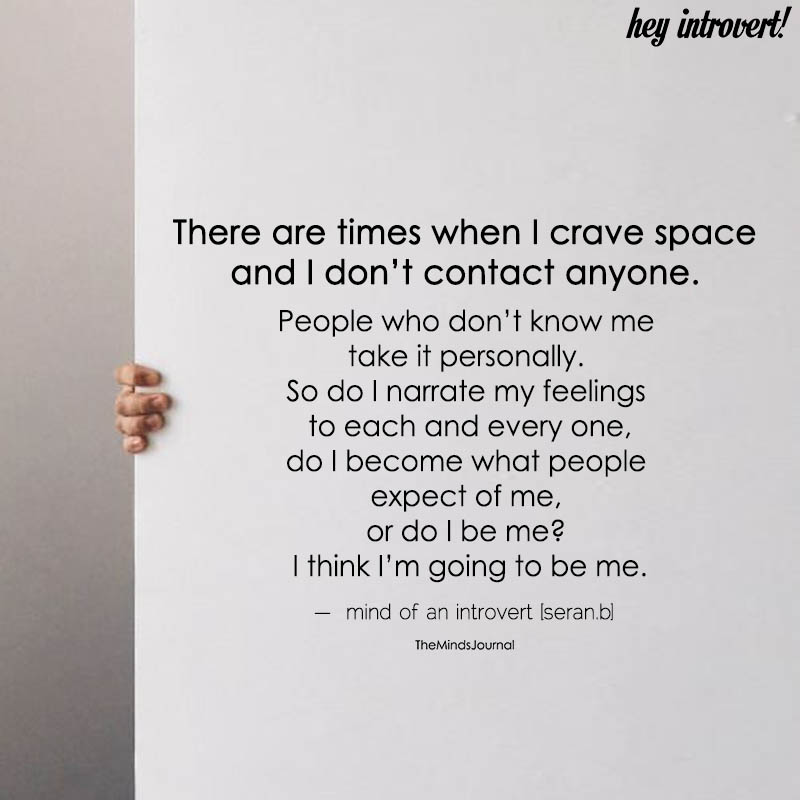
Sometimes it’s more aggravation than it’s worth to confront intruders who you’ll never see again: the motor-mouth woman in the airport ticket line, the guy who steals your parking space.
One mellow friend told me, “No one cuts me off in traffic anymore because I let everyone in!” When faced with a “Let it be” scenario, your sense of equanimity is the greatest victory.
Related: Famous Zen Master Explains The Art Of ‘Letting Go’ and what it means in Relationships
2. View the personal space intruder’s insensitivity with compassion.
Remember, personal space intruders, are usually not doing it to you personally. Maybe they’re just having a bad day. Maybe they lack the good sense or manners not to intrude.
Or perhaps they’re so egotistical or inconsiderate they’re only concerned for themselves, a crippling deficit of heart. Or, if they’re being malicious, perhaps it’s a great weakness and darkness within them.
When someone intrudes on your personal space, stick to the high road. Try to remedy the problem using the above tips. It’s tempting to get nasty, which may provide a fleeting release, but it has no real gains. I’m so adamantly against payback because it’s completely devoid of compassion for the offender or any desire to improve how we humans relate.
Written By Dr. Judith Orloff
Originally Appeared In Judith Orloff M.D.
Adapted from Dr. Judith Orloff’s book “The Empath’s Survival Guide: Life Strategies for Sensitive People” (Sounds True, 2017)
Learn more about awakening subtle energies at Dr. Judith Orloff’s Empath Support Retreat 2020 in Los Angeles, April 25 & 26. Information at www.drjudithorloff.com
What to do when someone invades your personal space?
Protecting your personal space is a very important key to reducing your stress. Setting your boundaries and limits as well as voicing your opinion is crucial when someone decides to roam in your personal territory without your permission.
Signs of invasion of personal space
Your personal space and boundaries may vary for people in different ways and reasons. But, when your defined personal space gets invaded, your protective comfort zone also gets shifted and you feel uncomfortable, stressed, and even anxious.

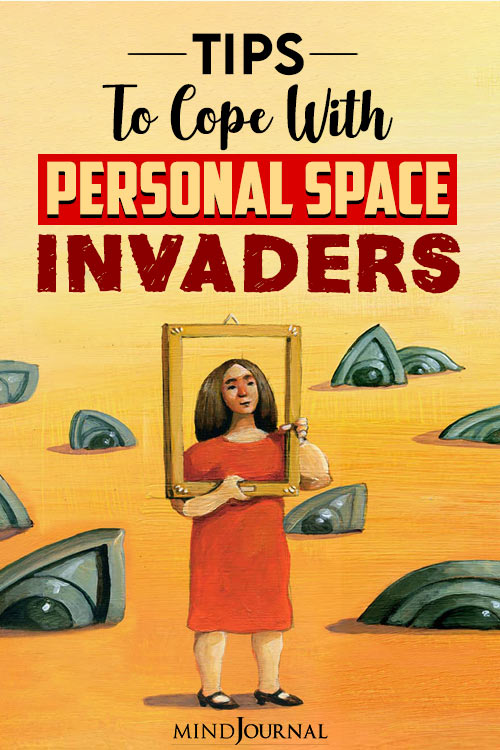
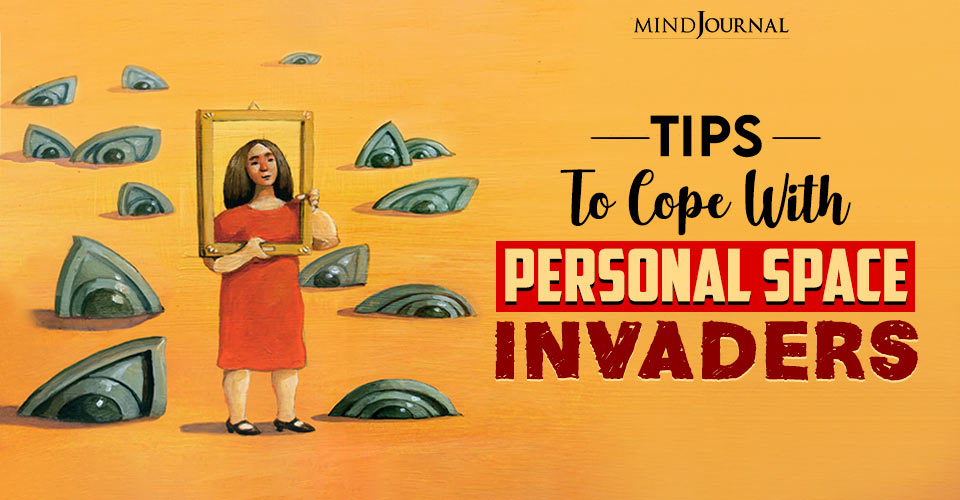

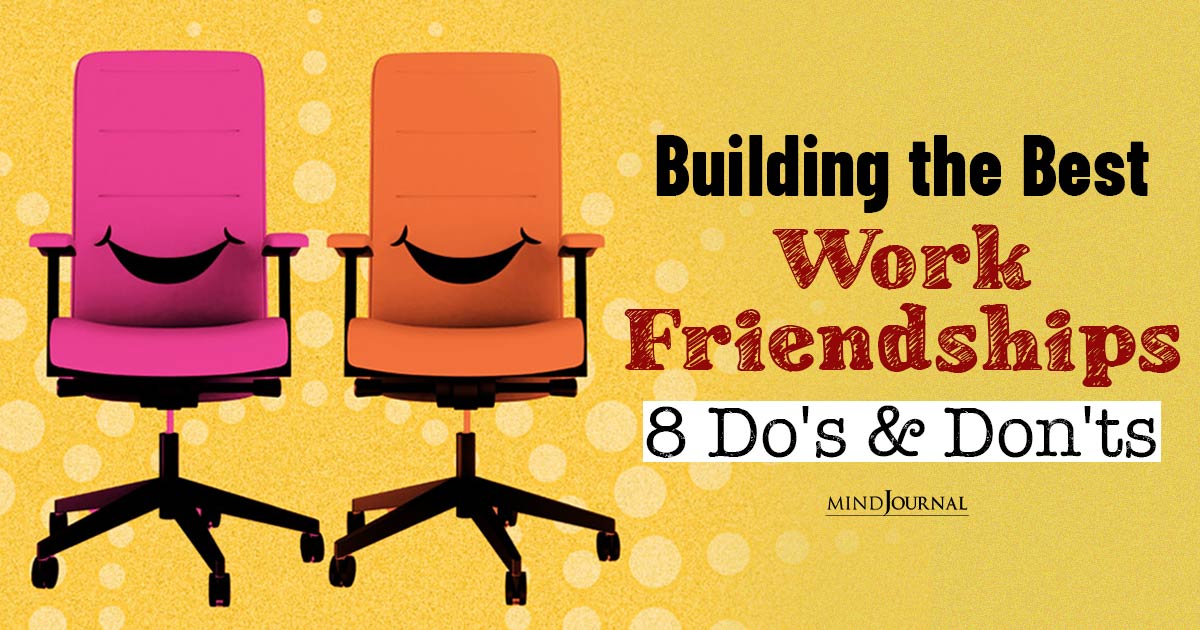





Leave a Reply
You must be logged in to post a comment.